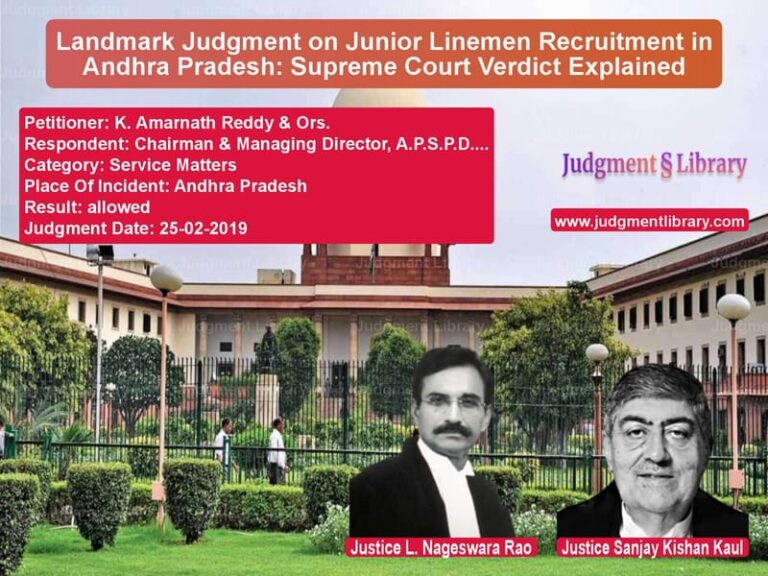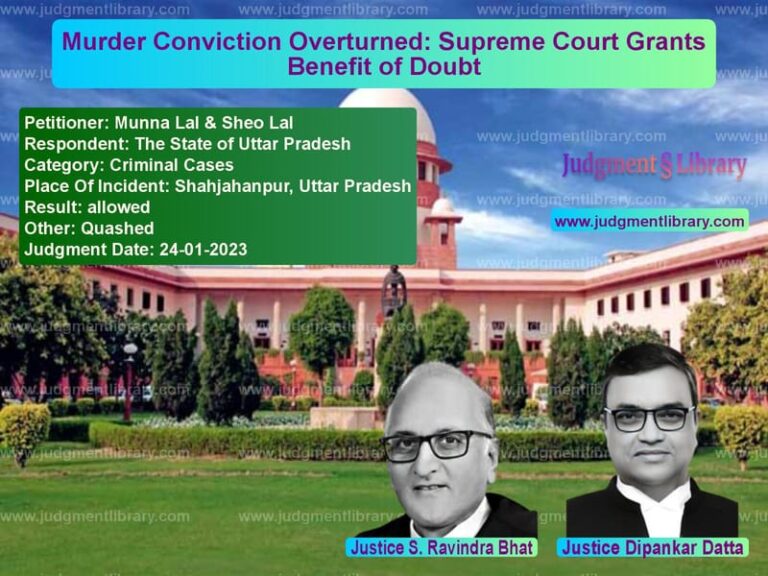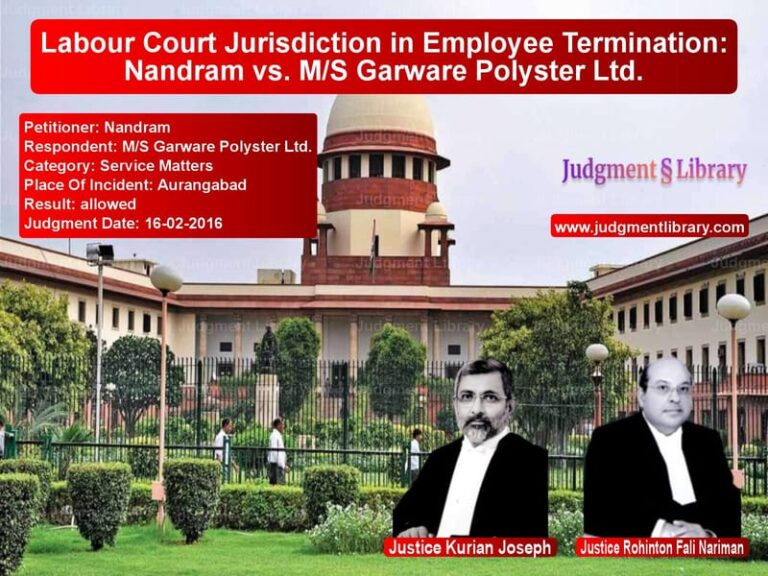Insolvency Proceedings and Mandatory Timelines: Supreme Court Clarifies the Law
The case between M/S. Surendra Trading Company and M/S. Juggilal Kamlapat Jute Mills Company Limited revolved around the interpretation of time limits prescribed in the Insolvency and Bankruptcy Code, 2016 (IBC). Specifically, the issue was whether the seven-day period for rectifying defects in an application under Section 9(5) of the Code is mandatory or directory.
Background of the Case
The dispute arose when Surendra Trading Company, an operational creditor, filed an application to initiate insolvency proceedings against Juggilal Kamlapat Jute Mills under Section 9 of the IBC. The National Company Law Appellate Tribunal (NCLAT) ruled that the seven-day time frame for rectifying defects in an application was mandatory. If an applicant failed to correct defects within this period, the application would be rejected.
Arguments Presented
Petitioners’ Arguments (Surendra Trading Company):
- The seven-day period should be considered directory rather than mandatory, as strict adherence could lead to unfair dismissals of valid applications.
- The delay in rectifying defects should not automatically disqualify an application, especially when substantial justice is at stake.
- Precedents from procedural law suggest that time limits should not be enforced rigidly when they do not impact the substantive rights of parties.
Respondents’ Arguments (Juggilal Kamlapat Jute Mills):
- The IBC prescribes strict timelines for insolvency proceedings, and allowing flexible interpretation would defeat the purpose of the law.
- Failure to comply with the prescribed period should result in rejection to ensure the efficiency of the resolution process.
- The NCLAT had correctly ruled that the seven-day period is mandatory, ensuring uniformity in the application of the law.
Supreme Court’s Ruling
Justice A.K. Sikri and Justice Ashok Bhushan ruled that the seven-day period is directory and not mandatory. The key points of the judgment were:
- The Supreme Court emphasized that procedural laws should aid justice, not obstruct it.
- Rigid adherence to the seven-day period could lead to rejection of applications on technical grounds, defeating the IBC’s intent.
- The Court noted that while adherence to timelines is important, some flexibility must be allowed to prevent injustice.
- The adjudicating authority can permit an extension if a valid reason is presented for the delay in rectifying defects.
Important Extract from the Judgment:
The Supreme Court stated, “Insolvency laws are meant to ensure resolution of financial distress in a timely manner. However, procedural requirements should not be used as tools to deny substantive justice. A strict interpretation of the seven-day period would lead to unnecessary dismissals of cases that have merit.”
Conclusion
This ruling clarifies that while the IBC sets strict timelines, courts must adopt a balanced approach to prevent procedural rigidity from causing injustice. The judgment reinforces the principle that the insolvency process should be fair, expeditious, and flexible when necessary.
Don’t miss out on the full details! Download the complete judgment in PDF format below and gain valuable insights instantly!
Download Judgment: MS. Surendra Tradin vs MS. Juggilal Kamlap Supreme Court of India Judgment Dated 19-09-2017.pdf
Direct Downlaod Judgment: Direct downlaod this Judgment
See all petitions in Bankruptcy and Insolvency
See all petitions in Company Law
See all petitions in Corporate Compliance
See all petitions in Judgment by A.K. Sikri
See all petitions in Judgment by Ashok Bhushan
See all petitions in allowed
See all petitions in supreme court of India judgments September 2017
See all petitions in 2017 judgments
See all posts in Corporate and Commercial Cases Category
See all allowed petitions in Corporate and Commercial Cases Category
See all Dismissed petitions in Corporate and Commercial Cases Category
See all partially allowed petitions in Corporate and Commercial Cases Category







